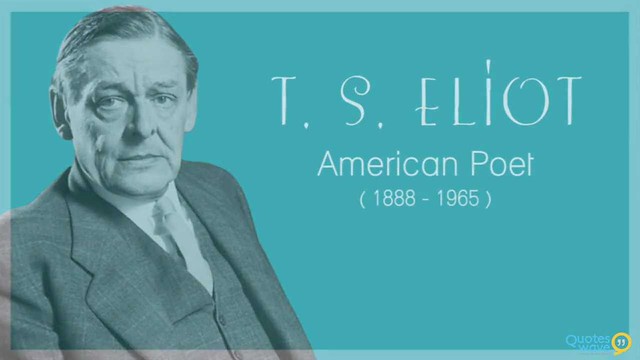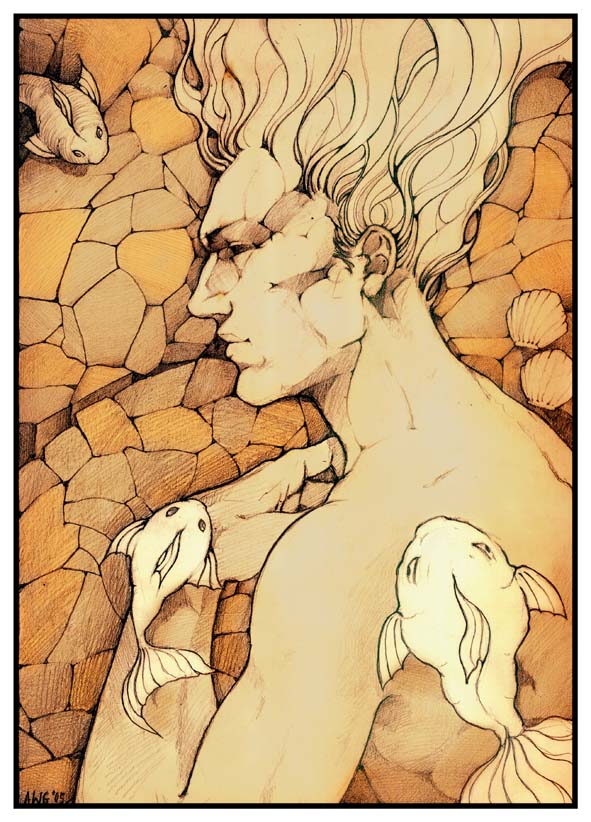
This will probably only be of interest to the most hardcore literati among you, but if you like poetry, literature or weird history, read on McDuff. According to Wikipedia, Jean Jules Verdenal “(May 11, 1890–May 2, 1915) was a French medical officer who served, and was killed, during the First World War. Verdenal and his life remain cloaked in obscurity; the little we do know comes mainly from interviews with family members and several surviving letters.”
Verdenal was born in Pau, France, the son of Paul Verdenal, a medical doctor. He had a talent for foreign languages. He was athletically inclined. Verdenal as a student was interested in literature and poetry and possessed copies of Stéphane Mallarmé’s Poésies and of Jules Laforgue’s Poésies and Moralités Légendaires. It was perhaps Verdenal’s literary inclinations that led him to become friends with American poet T.S. Eliot, whom he met in 1910 at the Sorbonne. After they parted ways, Verdenal and Eliot corresponded through letters. Verdenal was killed on May 2, 1915, while treating a wounded man on the battlefield. This was just a week into the Gallipoli Campaign and a few days shy of his twenty-fifth birthday.”

T.S. Eliot, of course, was an American-born poet, who most people know of because his 1939 collection of poems, “Old Possum’s Book of Practical Cats,” was later adapted by Andrew Lloyd Webber into the popular musical, “Cats,” which debuted in 1981. But here’s the basics, again from Wikipedia:
Thomas Stearns Eliot (September 26, 1888–January 4, 1965) was a British essayist, publisher, playwright, literary and social critic, and “one of the twentieth century’s major poets”. He moved from his native United States to England in 1914 at the age of 25, settling, working, and marrying there. He eventually became a British subject in 1927 at the age of 39, renouncing his American citizenship.
Eliot attracted widespread attention for his poem “The Love Song of J. Alfred Prufrock” (1915), which was seen as a masterpiece of the Modernist movement. It was followed by some of the best-known poems in the English language, including The Waste Land (1922), “The Hollow Men” (1925), “Ash Wednesday” (1930), and Four Quartets (1943). He was also known for his seven plays, particularly Murder in the Cathedral (1935) and The Cocktail Party (1949). He was awarded the Nobel Prize in Literature in 1948, “for his outstanding, pioneer contribution to present-day poetry.”
There is also speculation that Verdenal was the inspiration for the character “Phlebas the Phoenician” in Eliot’s long-form poem “The Wasteland,” which he published in 1922. Eliot certainly dedicated some of his works to Verdenal, including “his first volume of poetry, ‘Prufrock and Other Observations,’ which was published two years after Verdenal’s death, in 1917.
Here’s another account of their meeting and friendship:
In 1910 T.S. Eliot, then a graduate student studying philosophy at Harvard University, went to Paris to study a year at the Sorbonne. He took a room at a pension where he met and befriended Jean Verdenal, a French medical student who had another room there.
Eliot returned to Harvard in the autumn of 1911 to continue his work toward a doctorate.
Eliot and Verdenal carried on a correspondence at least through 1912. Seven letters from Verdenal to Eliot (written in French) are archived at Harvard University’s Houghton Library. The Verdenal letters have also been published in The Letters of T.S. Eliot: 1898-1922 (Vol 1). Apparently no copies of Eliot’s letters to Verdenal survive.
So why I bring this is up is the following passage, from a letter that Verdenal wrote to T.S. Eliot in July of 1911.
“My dear friend, I am waiting impatiently to hear that you have found some notepaper in Bavaria, and to receive an example of it covered with your beautiful handwriting, before German beer has dulled your wits. As a matter of fact, it would have some difficulty in doing so, and we see that even few natives of the country escaped its effects; history tells us that the formidable Schopenhauer was a great beer-lover. He also played the clarinet, but perhaps that was just to annoy his neighbours. Such things are quite enough to make us cling to life. The will to live is evil, a source of desires and sufferings, but beer is not to be despised — and so we carry on. O Reason!”
Verdenal has an interesting take on German beer. ANd the clarinet, which I used to play, too.

And this is passage from “The Wasteland,” about which some scholars believe Verdenal was the inspiration for Phlebas the Phoenician. You can read more about why at this page about T.S. Eliot and Jean Verdenal.
IV. Death by Water
Phlebas the Phoenician, a fortnight dead,
Forgot the cry of gulls, and the deep sea swell
And the profit and loss.
A current under sea
Picked his bones in whispers. As he rose and fell
He passed the stages of his age and youth
Entering the whirlpool.
Gentile or Jew
O you who turn the wheel and look to windward,
Consider Phlebas, who was once handsome and tall as you.
